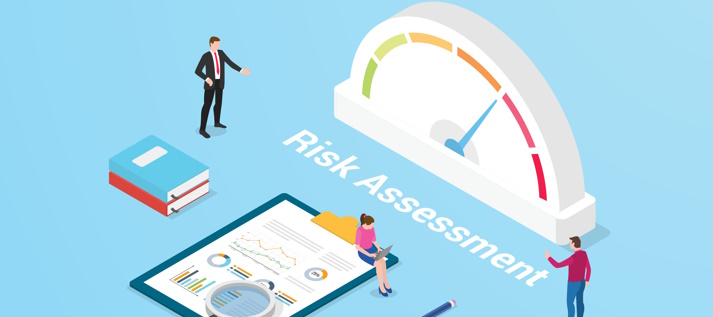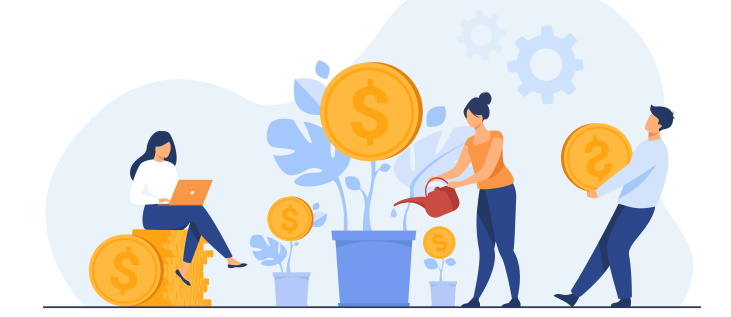For a quick glimpse into the power of compounding, consider what history’s most successful investor, Warren Buffett, wrote in his famous philanthropic pledge: “My wealth has come from a combination of living in America, some lucky genes, and compound interest.”
To understand why Buffett believes compound interest played such a central role in his investment success – and how it can help you grow your own wealth – let’s discuss how compounding works.
What Is Compounding?
In investing, compounding is the powerful process (some call it a force) by which the interest you’ve earned on an investment generates its own interest, and then over time that interest generates yet more interest.
This is why many financial experts describe compounding as a “snowball effect.” As your wealth grows, with interest producing still more interest, your returns continually build more power to grow more rapidly.
How Compounding Works
One way to gain a clear understanding of the power of compounding is to think about it not from the standpoint of investing and building wealth, but rather from its opposite: sinking in debt.
Why do consumers find it so difficult to climb out of credit card debt? Is it simply because they can’t stop making purchases with their cards? Of course not. Even after cutting up a credit card and throwing away the pieces, a card holder’s outstanding balance will continue to grow unless they pay it down. That’s because the interest on a credit card – often annualized at 20% or more – gets tacked onto the principal balance every month.
For example, $10,000 worth of credit card debt, with a 20% interest rate, will grow to $27,000 after five years of compounding – and will put the card holder more than $70,000 in debt after 10 years. And keep in mind, this assumes the card holder doesn’t add another dollar in new debt to that credit card in all of this time.
Now, if compounding is this powerful a wealth-building device for credit card companies, can it help you grow your own wealth? The answer is yes, and here’s how.
How to Benefit from the Power of Compounding
There are several ways to grow your wealth through compounding. If you simply keep your money in an interest-bearing savings account, the interest the bank pays you will earn interest, and then that new interest will generate interest of its own, and so on.
Of course, the interest rates banks pay for standard savings accounts are so small that this would probably not be the ideal way to expose your capital to the effects of compounding.
You could also invest in dividend-yielding stocks. By automatically reinvesting the dividends you receive on these shares to purchase more shares, you can also create a compounding effect. One risk here, however, is that the underlying stocks themselves will be subject to any downside risk inherent both in the business itself and in the broader volatility of the equities markets.
Yet another way to benefit from compounding is through real estate. Let’s say you invest in a private equity real estate fund, which owns and operates a portfolio of multifamily properties. If the fund’s managers raise rents just 4% per year, after 10 years those rents will have grown by 50% – because each year’s 4% increase is added to an increasingly higher base of rent from the previous year. Assuming an upward (or at least stable) market for housing, you can grow your wealth through real estate at an increasingly rapid rate through compounding.
At the same time, the underlying value of the properties themselves can benefit from the power of compounding. If the average apartment building in your fund’s portfolio appreciates at 7% per year, it will almost double in market value after a decade.
Now let’s return to our earlier discussion of compounding debt. If you are able to perform the same function as banks and credit card companies, you can also tap into the miracle of compounding that lenders enjoy. This means that if your private equity real estate fund also serves as a private real estate lender, your equity stake in that fund will also help you grow your wealth more quickly, as the fund enjoys compound-interest growth on the real estate loans it makes to borrowers.
Start Profiting from the Power of Compounding
If you’re looking for an investment vehicle that can help you tap into the benefits of compounding – through passive real estate ownership and management, as well as private lending – let us introduce you to the Worcester Fund.
This does not constitute an offer to purchase securities, and that any purchase may be made only through delivery and receipt of a confidential private placement memorandum from the issuer, pursuant to which any potential investor must complete and provide an investor questionnaire, subscription agreement and other things required by the issuer, and are subject to the issuer’s verification of accredited investor status and issuer’s acceptance of the subscription































